Why Higher Educationucation should be leading the metaverse revolution
.png/fit-in/700x9999/filters:no_upscale())
Ever since Mark Zuckerberg announced the rebranding of Facebook to Meta, there has been a new wave of ambition within the digital creative sector. The emerging desire was to think towards realising an impending metaverse, a world in which we all can move seamlessly across digital environments and, more critically, a place where we immerse ourselves within these spaces through next generation interfaces.
What is the Metaverse?
'
This idea was far more than simply having one login for everything, it would be a place where we feel as connected to it, as we do when immersed in physical space. Gone would be the flat screens, keyboards, mice, and even touch screens, the interfaces that kept us at a distance from digital data. Instead, we would rely on virtual reality technology, neurological control systems, gesture control, collective general artificial intelligence.
For those within HE, this means a comprehensive reimagination of what it is we do when we spend time learning. In this respect, the idea of the metaverse is as grand an evolutionary leap as was the creation of the world wide web, or even the library and it's why higher education institutions need to find their way in designing these new digital worlds before they run further away from them.
For years, HE has struggled to ride the wave of digital innovation generally and even digital innovation for learning. Worn down by the immense burden of delivering a public service, HE - like other mammoth industries, like public healthcare - has mostly played catch up since its inception.
Yet, within universities, we can observe small populations of digital learning outliers who may have broken protocol and started using Facebook, WhatsApp or other leading connectivity tools to engage their students. However, these examples are few and far between. In my own institution, we started using TikTok in a science communication course during the COVID-19 pandemic, but a comprehensive use of the platform for formal learning delivery is largely inconceivable, despite us knowing that these are the environments our students must master to graduate with the skills needed to function within employment.
How does TikTok work?
'
One of the reasons that explains this inertia is that, historically speaking, It's a novel situation. In the past, students didn't much need such systems. We had libraries, books, and the public spheres in which we debate ideas. While using a library to find information is certainly still an important skill for life, today's software systems are crucial skills for most forms of employment and the metaverse is like this, but on steroids.
Everywhere around me, I see innovators seeking to experiment with new immersive technology applications within their industry. From medicine to music, healthcare to history, there is a realisation that our understanding of the world will be greatly enriched by exploiting the potential of new, immersive technology, to reveal it more fully. We can step inside live visualisations of a patient's body, to grapple with what surgical intervention may be possible. We can assess flood risk predictions or climate models, with complex algorithms, which take into account real time data.
As it was originally conceived by author Neal Stephenson in his 1992 novel Snowcrash, the Metaverse is not just about expanding the existing monopoly of our corporate tech giants into every crevice of our waking lives. In fact, it's not really mostly about this at all. Certainly, it is about connecting up platforms, so you can go to a gig of an artist in Fortnite, or watch the World Cup in TikTok, or become an in-field spectator of an esports tournament by immersing yourself in the 3D field of play. Moreover, each of these things is crucial to how we think about what education should become.
Yet, what's even more compelling about why HE should expand its presence in the metaverse is that we must be part of that imaginarium, or risk being left behind. Our students have mostly been subject to the platforms designed by web 2.0 companies and the metaverse is an opportunity to be part of the creation of these new worlds of discovery.
![]() In June, the Metaverse Standards Forum (https://metaverse-standards.org/) was created and now stands at over 450 member institutions, of which just 2 are universities. While universities have always been a critical building block to the realisation of our digital world - Zuckberg created Facebook while studying at Harvard - there is far more we can do to position higher education as the ideological foundation of the metaverse - a place where values matter, where equality, diversity, and inclusivity are key, and where its contribution is at least partially assessed by its capacity to have yielded opportunities for people to learn, grown, and seek to expand humanity's potential.
In June, the Metaverse Standards Forum (https://metaverse-standards.org/) was created and now stands at over 450 member institutions, of which just 2 are universities. While universities have always been a critical building block to the realisation of our digital world - Zuckberg created Facebook while studying at Harvard - there is far more we can do to position higher education as the ideological foundation of the metaverse - a place where values matter, where equality, diversity, and inclusivity are key, and where its contribution is at least partially assessed by its capacity to have yielded opportunities for people to learn, grown, and seek to expand humanity's potential.
The metaverse is an opportunity for HE to rethink its role within society, to think of it as a moment not unlike the birth of the Internet, the creation of television, or even the foundation of the printing press, but where to start?
Well, like most things in universities, we need to think about the spaces in which learning takes place. If you have no virtual reality campus, then this may be the time to start designing one. Create a place where students can gather, mobilise, imagine, create, design, reconnect, and struggle through the glitches that these new virtual buildings will inevitably experience.
Visit Salford University in the metaverse
'
Conduct a comprehensive survey of the faculty and you'll likely find metaverse ambassadors all over the place, from film theorists to physiologists. A critical part of this also involves mobilising our students to go beyond curriculum and support them in designing the future, turning curriculum on its head and making their ideas central to what is learned and taught.
And it's not just within our community.
Over the last few years at Salford University, we've been taking out virtual reality headgear to events and festivals all over the UK, showing them to professionals and public alike.
Showing public metaverse worlds at New Scientist Live
'
What unifies the responses of the people we've met - even showing them simple, off the shelf applications like Google's TiltBrush 3D painting experience or National Geographic's documentary that takes you up Everest to see the waste left by climbers - is that all people are amazed by the possibilities and the new perspectives they gain, coming out of the virtual world.
My personal journey in this world began as a Google Glass explorer a decade ago. Back then, Glass was met with equal measures of disdain and wonder. Its demise may well be attributed to it having been ahead of its time, yet we have seen countless copycat products emerge on the market since, even an augmented reality pair of Ray Bans by Facebook.
Prof Andy Miah on google Glass vs Facebook Ray Bans
'
While there's a feeling that we haven't yet figured out the interface for the metaverse - headsets are two cumbersome, ownership and access are unresolved -' what's exciting and surprising to many who are already working within this space is that the metaverse doesn't require just one type of interface. Environments like the metaverse world Spatial can be accessed by headsets, mobile devices, or computers, and all formats allow entry to the same place. Crucially, the metaverse should be seen as an evolutionary leap not a discontinuity in our technological trajectory and, as we build more functions into these spaces, we enable more people to take part, and this is what higher education should be about.
 Professor Andy Miah (@andymiah) is Chair of Science Communication & Future Media at the University of Salford, where he also Chairs the University Engagement Forum, which takes innovation, research, and new insights into public settings around the world.
Professor Andy Miah (@andymiah) is Chair of Science Communication & Future Media at the University of Salford, where he also Chairs the University Engagement Forum, which takes innovation, research, and new insights into public settings around the world.
'
Tags
- even
- higher
- learning
- metaverse
- more
- new
- party
- place
- public
- reality
- s
- students
- think
- time
- universities
- virtual
- within
- world


)
)
)
)
)
)
)
)
)
)
)
)
)
)
)
)
)
)
)
)
)
)
)
)
)
)
)
)
)
)
)
)
)
)
)
)
)
)
)
)
)
)
)
)
)
)
)
)
)
)
)
)
)
)
)
)
)
)
)
)
)
)
)
)
)
)
)
)
)